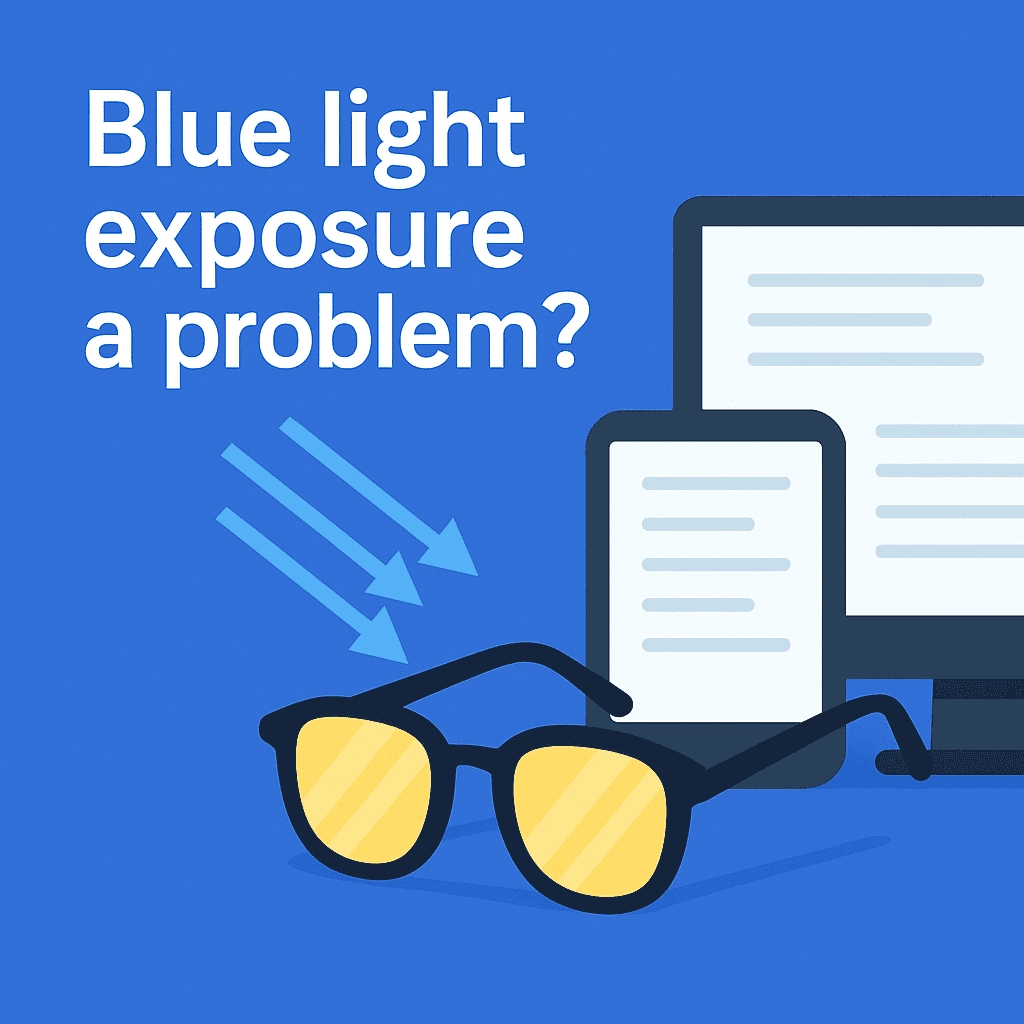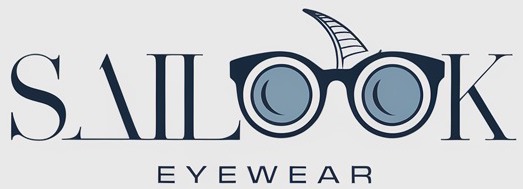The question of whether you can wear blue light glasses all day is one that many are asking today, especially given the growing concerns about screen time and eye health. With so many people working from home or spending long hours in front of digital screens, the need for effective solutions to combat eye strain has never been greater. But are blue light glasses the answer? In this article, we’ll take a deep dive into the science behind blue light glasses, explore their benefits, and address whether wearing them all day is a safe and effective practice.

1. What Are Blue Light Glasses?
Blue light glasses are specially designed eyewear that filter out blue light, a type of high-energy visible (HEV) light emitted by digital screens, artificial lighting, and even sunlight. Many people now wear these glasses to help mitigate the effects of prolonged exposure to blue light, such as digital eye strain, headaches, and difficulty sleeping.
But here’s the kicker – blue light isn’t all bad. While it has been linked to eye discomfort, it also plays an important role in regulating sleep and boosting alertness. The real question is how much exposure to blue light is too much, and how effective are these glasses at blocking harmful rays?
When shopping for blue light glasses, you’ll notice various designs, lens coatings, and materials. The most effective blue light glasses feature lenses with a special coating that absorbs or reflects the blue light wavelengths. They come in a variety of styles, from prescription glasses to non-prescription options, ensuring that there’s something for everyone.
| Type of Blue Light Glasses | Features | Best For |
|---|---|---|
| Prescription | Lenses customized for vision correction | Individuals who need vision correction along with blue light protection |
| Non-Prescription | No vision correction, just a blue light filter | People with normal vision seeking protection from screen time |
| Gaming Glasses | Specialized for gamers with a high contrast filter | Gamers to reduce eye strain during long sessions |
2. How Do Blue Light Glasses Work?
To understand how blue light glasses work, we need to look at the science behind blue light and its effect on the eyes. The human eye isn’t equipped to filter out blue light naturally, which is why prolonged exposure can lead to eye strain, discomfort, and even long-term damage. Blue light glasses work by using a special filter that blocks or absorbs these high-energy wavelengths before they reach your eyes.
What’s the real story here? The lenses of blue light glasses are coated with a special material that either absorbs or reflects blue light, depending on the specific design. Some glasses use yellow-tinted lenses to filter out blue light, while others incorporate clear lenses with a coating that works similarly to sunglasses.
For those who work long hours on digital screens, blue light glasses can reduce the strain caused by focusing on bright screens in dimly lit rooms. This makes it easier to maintain focus and prevent headaches or eye fatigue. In fact, many users report feeling more comfortable and productive when using these glasses throughout the day.
| Lens Coating Type | Functionality | Effectiveness on Blue Light Blocking |
|---|---|---|
| Yellow Tinted | Filters out blue light | Highly effective in blocking blue light |
| Clear Coated | Transparent coating to reflect blue light | Moderate effectiveness depending on the coating quality |
| Non-Coated | No special coating | Not effective for blocking blue light |
3. Can You Wear Blue Light Glasses All Day?
One of the most common questions surrounding blue light glasses is whether it’s safe or beneficial to wear them all day long. The short answer is yes, but it depends on the individual and their needs.
If you spend several hours a day in front of a computer, smartphone, or tablet, blue light glasses can provide a layer of protection against digital eye strain. They’re also helpful for reducing the impact of artificial lighting, which often emits blue light. However, wearing them all day is not necessarily required for everyone.
Here’s the catch – while blue light glasses help reduce strain from extended screen time, it’s important to balance screen exposure with regular breaks. Experts recommend the 20-20-20 rule: every 20 minutes, take a 20-second break and look at something 20 feet away. This can further reduce eye strain and improve overall eye health.
| Usage Duration | Recommended For | Potential Downsides |
|---|---|---|
| All Day | Heavy screen users, office workers | Possible discomfort if overused without breaks |
| Occasional Use | Casual screen users | Minimal eye strain relief |
| Short Intervals | Quick bursts of screen use | Ideal for those with intermittent screen exposure |
4. Are Blue Light Glasses Effective for Eye Health?
Research on the effectiveness of blue light glasses for eye health has been mixed. On one hand, there is solid evidence that blue light exposure can contribute to digital eye strain, headaches, and blurry vision. On the other hand, the scientific community is still debating the long-term effects of blue light and whether wearing glasses to filter it out provides lasting health benefits.
But here’s where it gets interesting – several studies show that wearing blue light glasses can significantly reduce eye discomfort and improve sleep quality. One study published in Optometry and Vision Science found that wearing blue light-blocking glasses for three hours before bed resulted in improved sleep patterns and reduced symptoms of digital eye strain.
While more research is needed to fully understand the long-term effects of blue light, current evidence suggests that blue light glasses can be a helpful tool for reducing short-term discomfort caused by prolonged screen exposure.
| Study Findings | Effect Observed | Length of Study |
|---|---|---|
| Optometry and Vision Science Study | Improved sleep patterns, reduced eye strain | 3-hour daily use before sleep |
| Journal of Vision Research Study | Reduction in headaches and eye discomfort | 2-week usage trial |
5. Should You Wear Blue Light Glasses for Computer Work?
For individuals who spend most of their day in front of a computer, blue light glasses can be a game-changer. Digital eye strain, also known as computer vision syndrome (CVS), is a common problem among office workers and gamers alike. The condition is characterized by symptoms such as dry eyes, blurry vision, headaches, and neck or shoulder pain.
The benefits of blue light glasses for computer work are undeniable. They help reduce glare from digital screens, which can cause additional strain on the eyes. The filter in the lenses blocks out blue light, making it easier for the eyes to focus for extended periods.
Ready for the good part? Users often report that blue light glasses help them feel less fatigued and more focused during work. Many people also experience fewer headaches and neck pain, as the glasses help alleviate strain caused by staring at screens for hours on end.
| Benefit | Effect on Eye Health | Best Usage Time |
|---|---|---|
| Reduced Eye Fatigue | Reduces discomfort during screen use | All-day use for heavy screen users |
| Less Headache | Prevents tension headaches | When working long hours on a computer |
| Enhanced Focus | Increases productivity and comfort | During long work sessions on screens |
6. Can Blue Light Glasses Improve Sleep?
Blue light exposure, particularly at night, can interfere with the body’s natural circadian rhythm, making it harder to fall asleep. This is because blue light suppresses melatonin production, the hormone that signals to the body that it’s time to sleep.
Wearing blue light glasses, especially in the evening, can help mitigate this effect. The glasses block or filter out blue light, allowing melatonin production to continue without interruption.
What’s the real story here? Several studies have shown that wearing blue light glasses before bedtime can improve sleep quality. One study found that individuals who wore blue light-blocking glasses for just two hours before bedtime had significantly better sleep quality and felt more rested the next day.
| Time of Day | Effect of Blue Light on Sleep | Impact of Blue Light Glasses on Sleep |
|---|---|---|
| Daytime | Increases alertness, prevents fatigue | Little effect on sleep quality |
| Evening | Disrupts melatonin production | Improves sleep onset and quality |
| Night | Decreases sleep duration | Enhances melatonin levels for better sleep quality |
7. Are Blue Light Glasses Suitable for People Who Don’t Use Screens All Day?
Even if you don’t spend all day in front of a screen, blue light glasses can still provide benefits. Blue light exposure is not limited to digital devices – it also comes from artificial lighting, such as fluorescent bulbs and LED lights, which are commonly found in homes, offices, and public spaces.
People who work under harsh artificial lighting can experience similar symptoms to those caused by prolonged screen use, such as eye strain, headaches, and blurred vision. Blue light glasses can be effective for these individuals as well, reducing the strain caused by exposure to artificial lighting and helping to protect their eyes throughout the day.
| Activity | Source of Blue Light | Benefit of Blue Light Glasses |
|---|---|---|
| Office Work | Fluorescent and LED lighting | Reduces strain and discomfort |
| Nighttime Reading | Artificial lighting in living spaces | Prevents disruption of circadian rhythm |
| Evening Walks | Street lights and car headlights | Reduces glare and eye discomfort |
8. What Are the Best Blue Light Glasses to Wear All Day?
When choosing blue light glasses for all-day wear, it’s essential to look for glasses that are comfortable, stylish, and effective. Here’s what to consider:
- Lens quality: Look for lenses with high-quality blue light filters that block out at least 30% to 50% of blue light.
- Frame design: Choose frames that are lightweight and adjustable for comfort. Glasses should not cause discomfort or pressure on the nose or ears, especially during extended wear.
- Style: Blue light glasses come in a variety of designs, so pick a style that fits your personal preference and can be worn all day without feeling out of place.
| Feature | Importance | Recommendation |
|---|---|---|
| Lens Quality | Effectiveness of blue light filtering | Look for lenses that block 30%-50% of blue light |
| Frame Comfort | All-day wearability | Choose lightweight, adjustable frames |
| Style and Design | Personal preference and professionalism | Opt for a style that fits your daily look |
9. Can Blue Light Glasses Be Worn While Driving?
Blue light exposure isn’t limited to digital screens – it also comes from headlights, streetlights, and the sun. While driving, blue light glasses can help reduce glare from headlights and streetlights, making it easier to see clearly at night.
However, there’s a catch – wearing blue light glasses during the day can slightly alter your perception of color, which may make it harder to distinguish certain road signs or traffic signals. It’s important to use caution and consider wearing blue light glasses only during nighttime driving or in environments with strong artificial lighting.
| Time of Day | Driving Condition | Blue Light Glasses Effectiveness |
|---|---|---|
| Night Driving | Headlights, streetlights | Reduces glare, improves clarity |
| Daytime Driving | Bright sunlight, natural light | May affect color perception |
| Low-light Conditions | Streetlights, signs in dim light | Improves visual comfort |
10. How Do Blue Light Glasses Compare to Other Eye Protection?
There are various types of eye protection available, such as anti-reflective coating glasses, prescription glasses, and UV-blocking sunglasses. How do blue light glasses compare to these alternatives?
Blue light glasses are specifically designed to block or filter blue light, whereas other types of eye protection may focus on reducing glare, UV light, or protecting against physical damage. Anti-reflective coatings, for example, reduce glare from screens and improve visual clarity, but they don’t block blue light. On the other hand, blue light glasses provide an extra layer of protection by reducing the harmful effects of prolonged screen exposure.
| Type of Protection | Purpose | Best For |
|---|---|---|
| Blue Light Glasses | Block blue light exposure | Reducing eye strain from screens |
| Anti-Reflective Coating | Reduce glare and reflections | Enhancing visual clarity |
| UV-Blocking Glasses | Protect from ultraviolet rays | Outdoor use to protect from UV rays |
11. Are Blue Light Glasses Comfortable for Long-Term Use?
One of the most important factors to consider when purchasing blue light glasses is comfort. After all, if you’re wearing them for hours each day, they need to feel comfortable.
Blue light glasses are generally lightweight, but it’s important to choose a pair with adjustable arms and nose pads. If the glasses are too tight or too loose, they can cause discomfort, especially during extended use. Additionally, ensure the lenses are clear and free from distortion, as this can impact your visual comfort.
| Feature | Comfort Level | Considerations |
|---|---|---|
| Adjustable Nose Pads | Highly comfortable for long-term use | Ensure they don’t pinch or slide |
| Lightweight Frames | Improves wearability | Check for flexibility and durability |
| Clear Lenses | Enhances visual comfort | Look for high-quality, distortion-free lenses |
12. Can You Wear Blue Light Glasses for Gaming?
Gamers spend hours staring at digital screens, which increases their risk of developing digital eye strain. Blue light glasses can help reduce eye fatigue and discomfort caused by long gaming sessions.
The good news? Blue light glasses for gaming are designed with the specific needs of gamers in mind. They often feature a lightweight, comfortable frame and lenses that enhance contrast while reducing blue light exposure. This makes them ideal for anyone who wants to enjoy longer gaming sessions without experiencing eye strain or fatigue.
| Benefit | Effectiveness on Eye Comfort | Best for |
|---|---|---|
| Reduced Eye Fatigue | Prevents strain from prolonged gaming | Gamers who play for extended periods |
| Improved Contrast | Enhances visibility during gameplay | Gamers needing clearer visuals |
| Comfort During Sessions | Lightweight and adjustable frames | Gamers who prioritize comfort |
13. How Often Should You Take Breaks While Wearing Blue Light Glasses?
The 20-20-20 rule is a popular method for preventing eye strain caused by prolonged screen time. It’s simple – every 20 minutes, take a 20-second break and focus on something 20 feet away.
While wearing blue light glasses can help reduce digital eye strain, taking breaks regularly is still essential for maintaining eye health. Incorporating the 20-20-20 rule into your daily routine can help further reduce strain and keep your eyes refreshed throughout the day.
| Frequency of Breaks | Eye Health Benefit | Best Practice |
|---|---|---|
| Every 20 Minutes | Reduces eye fatigue and strain | Follow the 20-20-20 rule |
| Every 30-60 Minutes | Prevents dry eyes and discomfort | Longer sessions require more breaks |
14. Are There Any Downsides to Wearing Blue Light Glasses All Day?
While blue light glasses can be highly beneficial for those who spend long hours in front of screens, there are some potential downsides to wearing them all day. Overuse can cause discomfort, and constantly relying on blue light glasses can lead to less focus on natural eye care habits, like taking regular breaks.
Here’s the kicker – it’s essential to balance the use of blue light glasses with other strategies to protect your eye health, such as adjusting your screen settings and practicing good posture.
| Downside | Impact | Mitigation |
|---|---|---|
| Eye Discomfort | Prolonged wear may cause strain | Take regular breaks and adjust fit |
| Dependency | Over-reliance on blue light glasses | Integrate other eye health practices |
| Perception Changes | Some glasses may alter visual clarity | Choose the right lens type for comfort |
15. Conclusion: Should You Wear Blue Light Glasses All Day?
In conclusion, blue light glasses offer valuable protection for those who spend extended periods in front of digital screens. While it’s safe to wear them all day, it’s important to balance their use with regular breaks and natural eye care practices. Ultimately, blue light glasses can help reduce eye strain, improve focus, and support better sleep, making them an essential tool for many workers and gamers.
FAQ Section
Q1: What are blue light glasses?
Blue light glasses are eyewear designed to filter out blue light, which can cause eye strain, headaches, and disrupt sleep patterns.
Q2: How do blue light glasses work?
They use special lenses that absorb or reflect blue light, reducing the amount of high-energy light that reaches the eyes.
Q3: Can you wear blue light glasses all day?
Yes, you can wear them all day, especially if you’re exposed to screens for extended periods, though regular breaks are still recommended.
Q4: Are blue light glasses effective for improving sleep?
Yes, wearing them before bedtime can help reduce blue light exposure and improve sleep quality.
Q5: Are blue light glasses suitable for people who don’t use screens?
Yes, they can be beneficial for people exposed to artificial lighting, helping reduce strain and improve comfort throughout the day.

